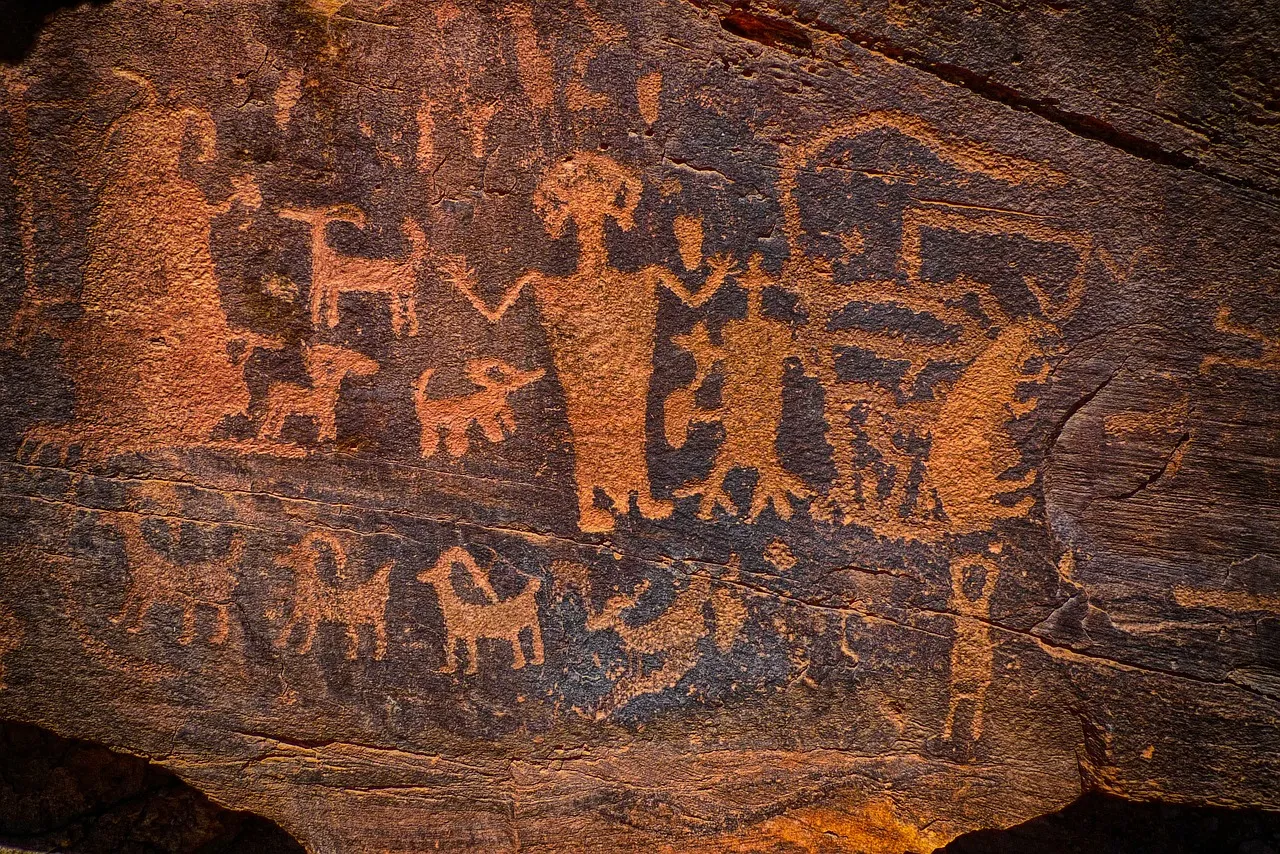
Hello to everyone one mre time!
Today I will continue the topic, which we spoke yesterday. If in a nutshell, yesterday we shared our opinion on the theme of fine art in the Paleolithic era. Today we will go a little further. Today, let's talk about the fine arts in the Mesolithic, Neolithic, Bronze Age. And I will speak about burials a little bit.
want to note that the difference between the most ancient period of mankind - (Paleolithic) and the Neolithic. The difference is the Neolithic man learned to farm and cattle.
In general, during the Neolithic period a person's life changes greatly. A person goes on to more complex forms of work. If earlier a person extracted food with the help of hunting and fishing, now the person begins to engage in cattle breeding and farming. In the same period, man creates a new material - refractory clay. Prior to this invention, man enjoyed only what nature bestowed upon him-stone, bone, and wood. As for the fine arts, it was not relevant for farmers to portray animals. They managed to find a new occupation for themselves - they were pleased to decorate the surface of clay products. In this era there were more complex ornaments. In the same period, ceramics were formed, processing of metal. Bows and arrows appeared, in time people learned to make pottery from clay. By the way, in this period a person tamed a dog.
Further we smoothly pass into the Bronze Age era. During this period of human life, the images of animals disappear, they are replaced by dry geometric patterns. Petroglyphs lose their popularity. Petroglyphs are drawings made with the help of carving on any material (on a stone, for example). Now people do not take the time to make a beautiful knockout on the knife. But on change more interesting and entertaining employment come. For example, people start mining copper ore, smelting copper, creating products from a variety of alloys.

Those tribes that stayed in their native places, go to a higher stage of development - they have social shifts in the tribes. In connection with these phenomena, art crafts developed: articles of gold, silver, and bronze were also made.
And now we proceed smoothly to the discussion of funeral rites.
It all started with the appearance of a new kind of architectural structures - people learned to build fortresses. More often these structures are rough-hewn stones, which are still preserved in many places in Europe and the Caucasus. Approximately in the same period, the first settlements begin to emerge and, according to this. the burial becomes more cultural and traditional. But this cannot be called the birth of a funeral rite.
In fact, many anthropologists believe that the most ancient burials occur during the Paleolithic period. So, for example, in 1908 the Swiss made a very interesting discovery. He found the grave of a Neanderthal boy, who lived several tens of thousands of years ago. Near the skeleton of the young man lay several burned animal bones. This surprising discovery has pushed people to the fact that even in the most ancient times people respected the deceased and generally towards death in general. But this hypothesis has several "BUT". The fact is that such discoveries were done very little to state that the Neanderthals had already looked at the World consciously. And the second "BUT" is the fact that all found graves do not contain any common signs. In other words, each burial is played out in different ways.
After this discovery, a number of finds were made, which showed a similar picture. What is surprising that the remains of the Neanderthals are always directed to the East or to the West. This suggests that people already at that time looked at death ritually.
I want to tell you a little about the ritual in which flowers are given. Initially, people began to put flowers in the grave of the deceased not to express to give respect and love to man. Initially, the dead were given only those flowers that had healing properties. Thus, if a person comes to life, he will be able to heal and return to his family. And only after a while this rite took today's significance.